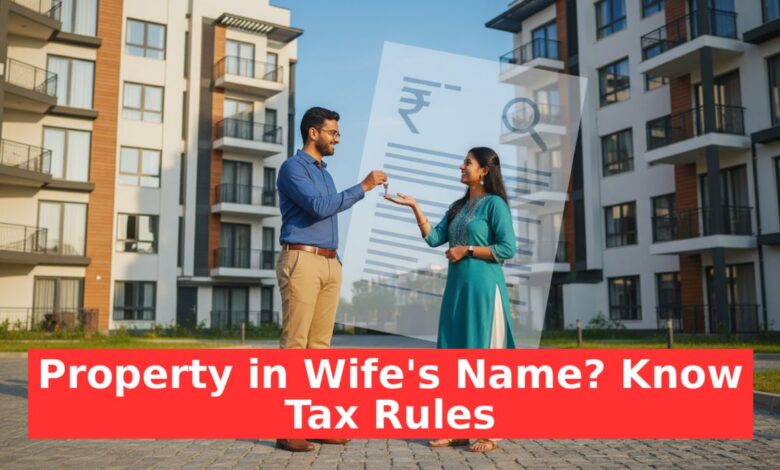Buying Property in Your Wife’s Name to Save Tax? Know the Real Income Tax Rules to Avoid Trouble

Property in Wife’s Name: Buying a property in your spouse’s name is a common practice, often done to save on stamp duty. For instance, in Maharashtra, women get a 1 percent concession on stamp duty and registration fees. However, before making such a decision, it is crucial to understand the associated income tax implications. A query recently highlighted this scenario: a husband plans to buy a property in his non-earning, non-tax-paying wife’s name, with the entire payment coming from his earnings. Let’s delve into the expert’s view on the tax implications of such a transaction.
Property in Wife’s Name: The Gift Rule
When a husband pays for a property purchased in his wife’s name entirely from his own funds, the transaction is treated as a ‘gift’ from the husband to the wife under income tax laws. According to the current tax regime, if the total value of gifts received by an individual from all sources in a financial year exceeds Rs 50,000, the entire amount is considered the recipient’s income and is taxed at their applicable slab rate.
However, this rule has some exceptions. Gifts received from specified relatives, including one’s spouse, are exempt from this tax. Therefore, when you contribute money to buy a property in your wife’s name, she will have no tax liability for this gift. She is not required to show this as income or file an Income Tax Return (ITR) for it.
The Clubbing Provision: Understanding the Real Tax Impact
While the gift itself is tax-free for the wife, the matter doesn’t end there. The ‘clubbing provisions’ under Section 64 of the Income Tax Act get triggered. This rule states that any income arising from an asset gifted to the spouse will be ‘clubbed’ or added to the income of the giver (the husband, in this case). The tax liability for this income will also fall on the husband. In simple terms, even though the property is in the wife’s name, any income it generates will be taxed in the husband’s hands.
Tax Implications in Different Scenarios
Let’s examine how the clubbing provision applies in various situations:
Rental Income: If you decide to let out the property, the rental income generated will not be considered your wife’s income. Instead, it will be clubbed with your total income and taxed according to your applicable tax slab.
Capital Gains on Sale: If the property is sold in the future, any profit or capital gains arising from the sale will also be clubbed with your income. You will be liable to pay the applicable capital gains tax on this amount.
Self-occupied Property: If the couple uses the property for their own residence, it is considered self-occupied. Since a self-occupied property does not generate any direct income, the clubbing provisions will not apply in this case, and no tax liability arises.
It is important to note that these clubbing provisions will continue to apply as long as the marriage subsists. Even if the original property is sold and the proceeds are used to acquire another asset, the income from the new asset will also be subject to clubbing. Therefore, while buying a property in your wife’s name can save on stamp duty, the long-term tax liability on any income it generates remains with the person who funded the purchase.

